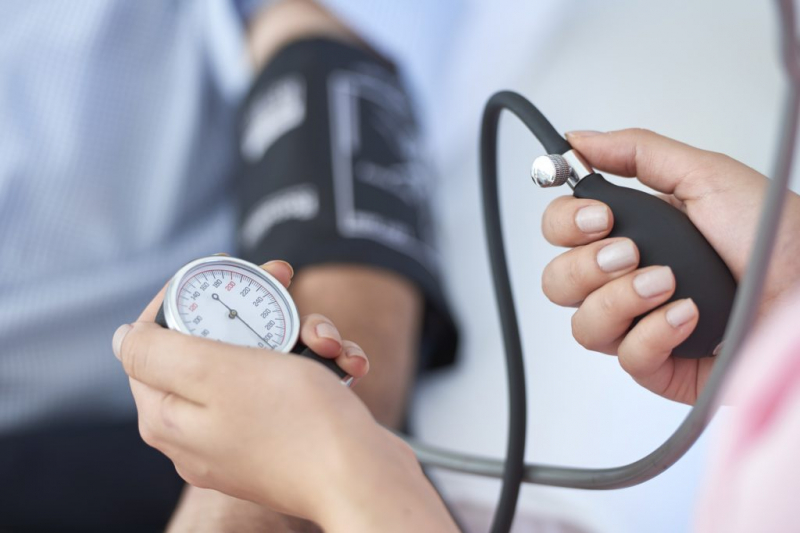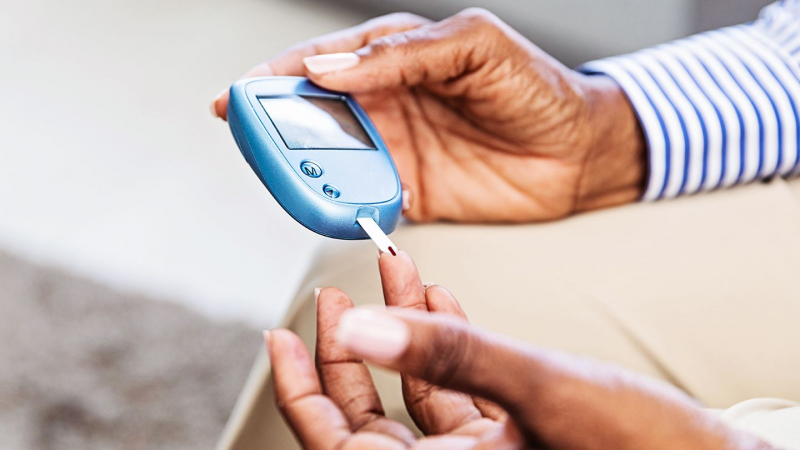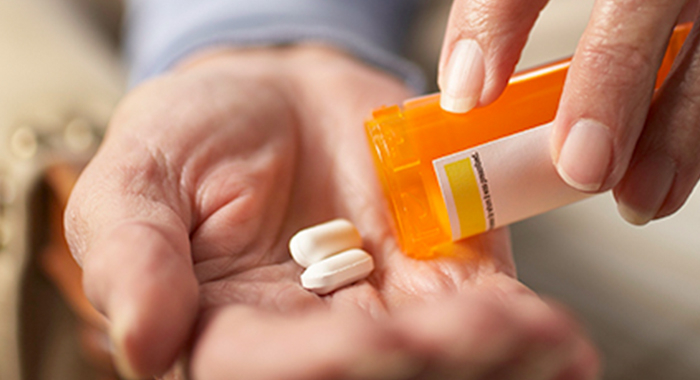Top 9 Best Ways to Prevent Coronary Artery Disease (CAD)
Reduced blood flow through the coronary arteries, which transport blood to the heart muscle, is known as coronary artery disease (CAD). CAD, also known as ... read more...coronary heart disease (CHD), affects approximately 16.5 million Americans aged 20 and older. Fortunately, a few changes to your daily routine could protect your arteries and prevent CAD. Below are the best ways to prevent coronary artery disease!
-
Some foods help to keep your heart healthy, while others promote the buildup of plaque in your arteries. Increase your intake of foods that are protective, such as fruits, vegetables, whole grains, lean protein, fish, nuts, and olive oil. Sweets, fried foods, red and processed meats, full-fat dairy products, and sweets should all be limited or avoided.
Unsaturated fats, which have been demonstrated to raise levels of healthy cholesterol and help prevent any blockage in your arteries, should be a part of a balanced diet. Foods high in unsaturated fat include oily fish; avocados; nuts and seeds
sunflower; rapeseed, olive, and vegetable oils. Additionally, you should make an effort to limit your intake of sugar as this can increase your risk of getting diabetes, which is known to greatly increase your risk of CHD. Furthermore, consume no more salt than one teaspoon daily. Your blood pressure can increase if you eat too much sodium.
Eat a heart-healthy diet 
Eat a heart-healthy diet -
The greatest method to keep a healthy weight is to combine a nutritious diet with physical exercise. Your risk of acquiring high blood pressure is decreased by maintaining a healthy weight.
Regular exercise will lower your cholesterol, improve the efficiency of your heart and blood circulation, and maintain a healthy level of blood pressure. Regular exercise lowers your risk of suffering a heart attack. The studies show that the heart muscle is strengthened by aerobic exercise. Additionally, it reduces fat, decreases blood pressure, and raises levels of HDL cholesterol, which is beneficial. Exercise-induced weight loss may help lower LDL cholesterol levels. Aim for 150 minutes per week of aerobic exercise at a moderate level. Alternately, engage in 75 minutes of high-intensity aerobic exercise each week. If you've never exercised before, be sure it's safe for you by consulting your doctor first.

Get more active 
Get more active -
It's well known that obesity leads to cardiovascular disease. Those who have a body mass index (BMI) of between 25 and 30 are regarded as overweight. Your risk of developing CAD can be decreased by losing weight and maintaining a healthy weight. Weight loss frequently improves blood pressure and cholesterol levels, two additional CAD risk factors, and it may also help manage diabetes.
In fact, your heart and blood vessels are put under more strain when you are overweight. If you lose just 5 to 10% of your body weight, your blood pressure and LDL cholesterol will go down. It might also lower your risk of developing CAD. A nutritionist or dietitian can be recommended by your doctor if you're having trouble reducing weight and need assistance. To keep yourself motivated and track your progress, you can also use a phone app.

Lose weight 
Lose weight -
Quitting smoking will lower your risk of CHD if you currently smoke. Smoking is a major risk factor for developing atherosclerosis (furring of the arteries). The majority of coronary thrombosis cases in those under 50 are also brought on by it.
In fact, smoking raises your risk of getting CAD and dying early from CAD. Each puff of cigarette smoke contains thousands of chemicals that narrow your arteries and harm your heart. By giving up smoking, smokers can reduce their risk of suffering a heart attack. Although giving up is difficult, your doctor can support you in a number of ways. You can lessen your urge to smoke with the help of medication, therapy, and nicotine replacement products. If you're determined to stop smoking, the American Lung Association is an excellent place to find support or therapy.

Stop smoking 
Stop smoking -
You can help keep your blood pressure in a healthy range by leading a healthy lifestyle. Keeping your blood pressure under control can reduce your chance of developing heart disease and stroke.
By following a healthy, low-saturated-fat diet, doing regular exercise, and, if necessary, taking blood pressure medication, you can keep your blood pressure under control. The DASH (Dietary Approaches to Stop Hypertension) eating plan external icon is a healthy diet plan with a proven record of helping people lower their blood pressure. You should try to keep your blood pressure under 140/90mmHg. If you already have high blood pressure, it is important to prevent it from getting worse or causing complications. Ask your doctor to check your blood pressure regularly if you have high blood pressure.

Keep blood pressure under control 
Keep blood pressure under control -
One drink a day of alcohol consumption is probably not bad for your heart. But there is not much evidence that completely backs up the idea that consuming alcohol may be beneficial to your overall health.
A glass of red wine may help lower HDL cholesterol, but drinking too much alcohol might be harmful to the heart. Alcohol abuse can increase the risk of heart failure, obesity, and high blood pressure. Drink carefully; if you drink, do not exceed the maximum recommended limits. Men and women are advised not to regularly drink more than 14 units a week; spread your drinking over 3 days or more if you drink as much as 14 units a week. Avoid binge drinking, as this increases the risk of a heart attack. Of course, check with your doctor if drinking is even safe for you.

Limit alcohol 
Limit alcohol -
The most common cause of death among diabetics is CAD. Many of the risk factors for the two diseases are similar, such as obesity, high blood pressure, and high LDL cholesterol.
Hypertension is caused by uncontrolled high blood sugar. Heart disease may eventually result from this damage. People with diabetes have a double increased risk of dying from heart disease compared to those without it because how diabetes affects blood sugar levels. Manage high blood pressure, obesity, and high cholesterol with dietary modifications and medicines to reduce your chance of developing CAD. Additionally, consult with your doctor to maintain proper blood sugar control. If you have diabetes, your target blood pressure level should be below 130/80mmHg.

Keep blood sugar under control 
Keep blood sugar under control -
In this fast-paced world, some stress is unavoidable. However, if you experience stress on a daily basis, it can raise your blood pressure and damage your artery walls.
To reduce stress in your daily life, find a relaxation technique that works for you and practice it often. Yoga is a great way to unwind, strengthen, and concentrate your body, mind, and spirit. It’s a great exercise for your heart. It lowers other risks of developing heart disease and blood pressure. Additionally, it can help in managing the stress that is a part of life. Or you can try meditation and prayer; they have been demonstrated that prayer and meditation can lower blood pressure and other heart disease risks. They can also help in sharpening your concentration on your goals and improving your stress management.

Reduce stress 
Reduce stress -
If lifestyle changes aren’t enough to protect your blood vessels, your doctor might prescribe one or more of these medications. Drugs used to prevent CAD work by lowering cholesterol, preventing blood clots, and reducing blood pressure. These recommended medications will help with symptom relief and prevent further problems from developing.
Your doctor might recommend medicine to stop you from developing heart-related issues if you don't have CHD but have high cholesterol, high blood pressure, or a family history of heart disease. It is important to take any medication as prescribed and adhere to the recommended dosage. Stopping your medication without first talking to a doctor could make your symptoms worse and harm your health.

Take any prescribed medicine 
Take any prescribed medicine






























